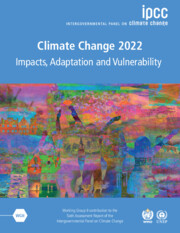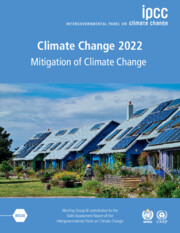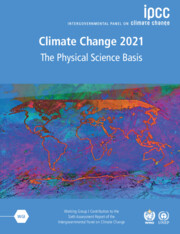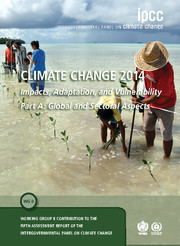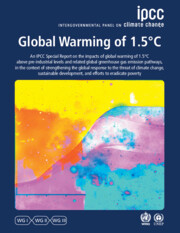Climate Change 2022 – Impacts, Adaptation and Vulnerability
The Working Group II contribution to the Sixth Assessment Report of the Intergovernmental Panel on Climate Change (IPCC) provides a comprehensive assessment of the scientific literature relevant to climate change impacts, adaptation and vulnerability. The report recognizes the interactions of climate, ecosystems and biodiversity, and human societies, and integrates across the natural, ecological, social and economic sciences. It emphasizes how efforts in adaptation and in reducing greenhouse gas emissions can come together in a process called climate resilient development, which enables a liveable future for biodiversity and humankind. The IPCC is the leading body for assessing climate change science. IPCC reports are produced in comprehensive, objective and transparent ways, ensuring they reflect the full range of views in the scientific literature. Novel elements include focused topical assessments, and an atlas presenting observed climate change impacts and future risks from global to regional scales. Available as Open Access on Cambridge Core.
- The Intergovernmental Panel on Climate Change (IPCC) is the leading international body for assessing human-induced climate change
- The IPCC is the joint winner of the 2007 Nobel Peace Prize
- This is the most up-to-date, comprehensive and balanced assessment of the impacts, adaptation and vulnerability to climate change
- IPCC reports are the most trusted source for information on climate change for policymakers and stakeholders
- This report recognizes the interactions of climate, ecosystems and biodiversity, and human societies, and integrates knowledge more strongly across the natural, ecological, social and economic sciences than earlier IPCC assessments
- This title is available as Open Access on Cambridge Core
Product details
June 2023Multiple copy pack
9781009325837
3000 pages
245 × 300 × 210 mm
8.44kg
Available
Table of Contents
- Summary for Policymakers
- Technical Summary
- 1. Point of Departure and Key Concepts
- 2. Terrestrial and Freshwater Ecosystems and Their Services
- 3. Oceans and Coastal Ecosystems and Their Services
- 4. Water
- 5. Food, Fibre and Other Ecosystem Products
- 6. Cities, Settlements and Key Infrastructure
- 7. Health, Wellbeing and the Changing Structure of Communities
- 8. Poverty, Livelihoods and Sustainable Development
- 9. Africa
- 10. Asia
- 11. Australasia
- 12. Central and South America
- 13. Europe. 14. North America
- 15. Small Islands
- Cross-Chapter Paper 1. Biodiversity Hotspots
- Cross-Chapter Paper 2. Cities and Settlements by the Sea
- Cross-Chapter Paper 3. Deserts, Semiarid Areas and Desertification
- Cross-Chapter Paper 4. Mediterranean Region
- Cross-Chapter Paper 5. Mountains
- Cross-Chapter Paper 6. Polar Regions
- Cross-Chapter Paper 7. Tropical Forests
- 16. Key Risks across Sectors and Regions
- 17. Decision-Making Options for Managing Risk
- 18. Climate Resilient Development Pathways
- Annex I Global to Regional Atlas
- Annex II Glossary
- Annex III Acronyms
- Annex IV Contributors to the Working Group II Contribution to the IPCC Sixth Assessment Report
- Annex V Expert Reviewers of the Working Group II Contribution to the IPCC Sixth Assessment Report
- Index.

